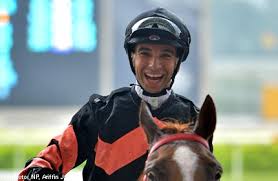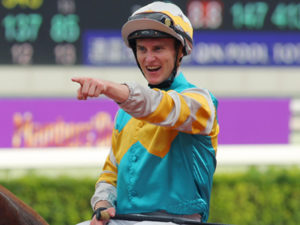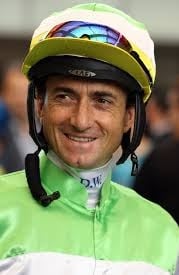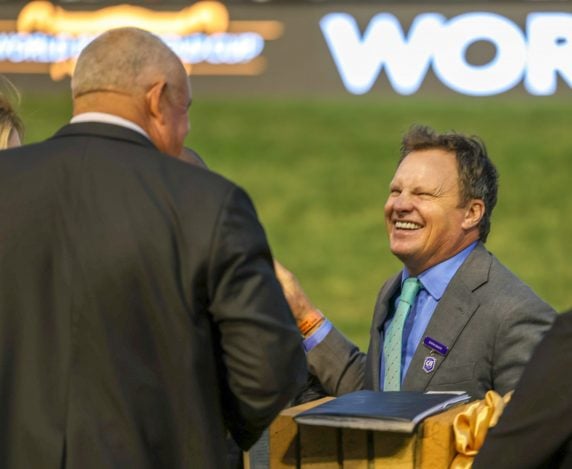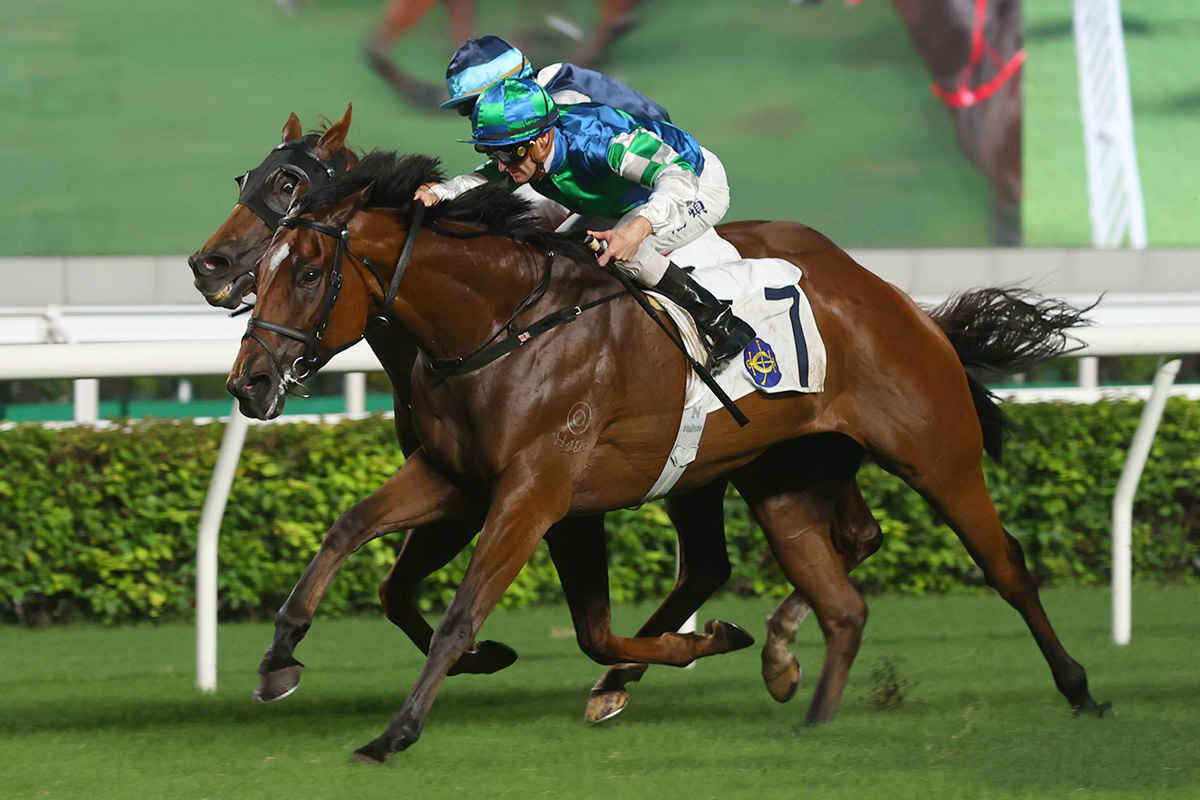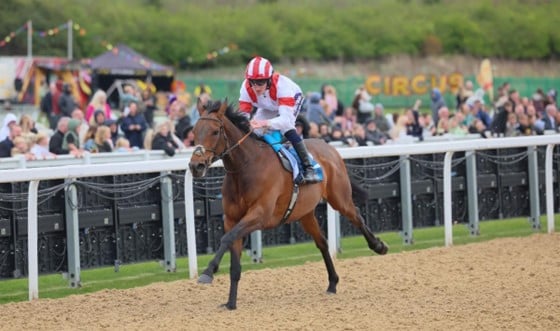When Hong Kong Jockey Club officials meet with jockeys before Sunday’s race meeting there won’t be any strike action or Occupy Central-style uprisings as we suggested earlier this season, but there are still some contentious issues on the agenda as the three superpowers of Moreira, Whyte and Purton – and the system itself – puts the squeeze on the lower-ranked riders.
Riding fees and jockey agents are two of the topics likely to be discussed at one of the semi-regularly scheduled meetings – airing sessions that are closed to the media and where grievances can be heard.
Unfortunately, for those in the lower half of the jockeys’ championship, complaining that Joao Moreira, Zac Purton and Douglas Whyte are just too good probably won’t get a run.
Let’s get one thing straight – no one is complaining too loudly anyway, as no one is forcing riders to compete in Hong Kong, although plenty don’t want to because they can’t crack that top echelon.
Besides, the ones that are here are welcome to leave if they don’t like the best per-race prize money in the world, two meetings a week schedule and the relatively luxurious, and almost-free, on-course housing.
Add that there are plenty of other talented jockeys that would love to ply their trade here and don’t get a look in for misdemeanours that happened years ago.
Still, the aforementioned topics – riding fees and agents – are commonly raised by jockeys as points of contention. All off the record, of course.
The prize money share among jockeys seems to reflect that of Hong Kong’s famed income inequality, with the three Li Ka-shings of the jockeys’ championship soaking up most of the prize money increases – which have also, unfairly and unnecessarily, been disproportionality weighted to the upper class races. This has already been covered by Alan Aitken’s On The Rails column (the one for grown-ups that runs in the SCMP every Wednesday) earlier this season.
Moreira, Purton and Whyte have won have won 153 of the 382 races so far this season – a tick over 40 per cent – but it is in the prize money stakes that the big difference lies.
It’s a little skewed because of Moreira’s two international day wins, but his mounts alone have won HK$92,434,340 between them.
The big three have won five of the seven Group Ones combined, and the prize money haul of their mounts is a massive HK$210,269,365 out of total purses of around HK$466 million – closer to 45 per cent.
The percentage take out for winning rides is 10 per cent, against five per cent for a placing, so it further tips the earnings see-saw towards the goliaths who win more often.
The dominance of the top three isn’t the point though; it is that riding fees – the amount given to a jockey win or lose, out of which insurance, medical and housing allowances are drawn from – haven’t changed in at least eight seasons.
Jockeys take home about HK$1000 (ZAR 1530) once expenses are taken out. A jockey who rides five winners a season still takes the same risks each time he rides than the jockey who wins 50 or 100 times, and his living costs are more or less the same too (even if the clothes he wears and the cars he drives are less expensive).
The topics that jockeys are far more boisterous about though are jockey agents. More to the point, why aren’t they allowed one when the club gives new riders help?
New jockeys have for the last few seasons had the assistance of a club-employed agent that helps the newcomers understand the system and communicate with trainers.
Not every jockey would need or want a manager, and in fact the only thing the big three need help with is counting their cash, but there are plenty more asking why they cannot be afforded the same luxury.
Allowing agents would be a tricky one for the club, who are wary of contact between riders and unlicensed persons, and it isn’t likely to happen. But the riders will be expecting at least more clarification about who gets help, and when, this week.
www.scmp.com


